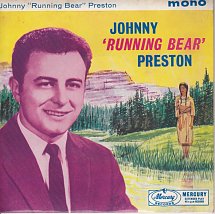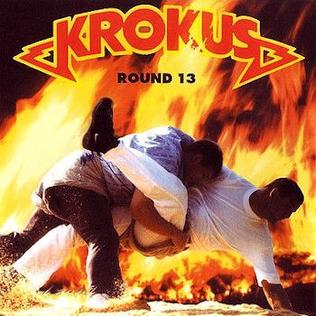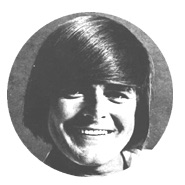
The Doors were an American rock band formed in Los Angeles in 1965, with vocalist Jim Morrison, keyboardist Ray Manzarek, guitarist Robby Krieger, and drummer John Densmore. They were among the most influential and controversial rock acts of the 1960s, primarily due to Morrison's lyrics and voice, along with his erratic stage persona and legal issues. The group is widely regarded as an important figure of the era's counterculture.

John Robert "Joe" Cocker was an English singer known for his gritty, bluesy voice and dynamic stage performances that featured expressive body movements. Most of his best known singles, such as "Feelin' Alright?" and "Unchain My Heart", were recordings of songs written by other song writers, though he composed a number of songs for most of his albums as well, often in conjunction with songwriting partner Chris Stainton.

The Mamas & the Papas were a folk rock vocal group which recorded and performed from 1965 to 1968. The group was a defining force in the music scene of the counterculture of the 1960s. Formed in New York City, the group consisted of Americans John Phillips, Cass Elliot, and Michelle Phillips, and Canadian Denny Doherty. Their sound was based on vocal harmonies arranged by John Phillips, the songwriter, musician, and leader of the group, who adapted folk to the new beat style of the early 1960s.

Renaissance are an English progressive rock band, best known for their 1978 UK top 10 hit "Northern Lights" and progressive rock classics like "Carpet of the Sun", "Mother Russia", and "Ashes Are Burning". They developed a unique sound, combining a female lead vocal with a fusion of classical, folk, rock, and jazz influences. Characteristic elements of the Renaissance sound are Annie Haslam's wide vocal range, prominent piano accompaniment, orchestral arrangements and vocal harmonies.

James Travis Reeves was an American country and popular music singer and songwriter. With records charting from the 1950s to the 1980s, he became well known as a practitioner of the Nashville Sound. Known as "Gentleman Jim", his songs continued to chart for years after his death in a plane crash. He is a member of both the Country Music and Texas Country Music Halls of Fame.

The Association is an American pop rock band from California. During the late 1960s, the band had numerous hits at or near the top of the Billboard charts and were the lead-off band at 1967's Monterey Pop Festival. They are known for intricate vocal harmonies by the band's multiple singers.

John Weldon "J. J." Cale was an American guitarist, singer, and songwriter. Though he avoided the limelight, his influence as a musical artist has been acknowledged by figures such as Mark Knopfler, Neil Young, Waylon Jennings, and Eric Clapton, who described him as one of the most important artists in rock history. He is one of the originators of the Tulsa sound, a loose genre drawing on blues, rockabilly, country, and jazz.

Survivor is an American rock band formed in Chicago in 1978 by Jim Peterik and Frankie Sullivan. The band achieved its best success in the 1980s, producing many charting singles, especially in the United States. The band is best-known for their double-platinum-certified 1982 hit "Eye of the Tiger", the theme song for the 1982 motion picture Rocky III; that single spent six weeks at number one in the US. The band continued to chart in the mid-1980s with singles like "Burning Heart", "The Search Is Over", "High on You", "Is This Love", and "I Can't Hold Back." Before Survivor formed, Jim Peterik was the lead vocalist–guitarist for the band The Ides of March. The Jim Peterik Band formed after Peterik had released his album Don't Fight the Feeling on Epic Records in 1976. The liner notes of the album, written by Jim Charney, refer to Peterik as a "survivor". This note inspired the name of Peterik's next grouping.

The West Coast Pop Art Experimental Band (WCPAEB) was an American psychedelic rock band formed in Los Angeles, California, in 1965. The group created music that possessed an eerie, and at times sinister atmosphere, and contained material that was bluntly political, childlike, and bizarre. Representing different musical backgrounds among band members, the group, at times, resembled a traditional Byrds-esque folk rock ensemble, but the WCPAEB also, within the same body of work, recorded avant-garde music marked by multi-layered vocal harmonies.
The Primevals are a Scottish rock group formed in 1983, who were influenced by the MC5, The Stooges, Captain Beefheart, Pharoah Sanders, The Gun Club, The Cramps, and 1960s American garage rock.

"Running Bear" is a teenage tragedy song written by Jiles Perry Richardson and sung most famously by Johnny Preston in 1959. The 1959 recording featured background vocals by George Jones and the session's producer Bill Hall, who provided the "Indian chanting" of "uga-uga" during the three verses, as well as the "Indian war cries" at the start and end of the record. It was No. 1 for three weeks in January 1960 on the Billboard Hot 100 in the United States and the same on Canada's CHUM Charts. The song also reached No. 1 in the UK Singles Chart and New Zealand in 1960. Coincidentally, "Running Bear" was immediately preceded in the Hot 100 No. 1 position by Marty Robbins' "El Paso", and immediately followed by Mark Dinning's "Teen Angel", both of which feature a death of, or affecting, the protagonist. Billboard ranked "Running Bear" as the No. 4 song of 1960. The tenor saxophone was played by Link Davis.
Jerome Louis "J.J." Jackson is an American soul/R&B singer, songwriter, and arranger. His singing style is as a belter. Jackson best known for the song "But It's Alright", which he co-wrote with Pierre Tubbs. The song was released in 1966 and then re-released in 1969, to chart success on both occasions. The liner notes to his 1967 album, J.J. Jackson, on Calla Records, stated that he weighed 285 pounds.

Don Preston is an American guitarist, singer, and songwriter whose career parallels the history of rock 'n' roll from the 1950s to the present. He notably recorded in the 1970s with Leon Russell on Leon Russell and the Shelter People and other albums, and with Joe Cocker on Mad Dogs and Englishmen. He backed Russell at George Harrison's Concert for Bangladesh in August 1971 and appeared in the documentary film and on the live album The Concert for Bangladesh.

Round 13 is the thirteenth studio album by the Swiss hard rock band Krokus, and the only album to feature Welsh vocalist Carl Sentance, formerly of Persian Risk and the Geezer Butler Band. It includes a cover of "Heya" by J. J. Light.

James Douglas Morrison was an American singer-songwriter and poet who was the lead vocalist and lyricist of the rock band the Doors. Due to his energetic persona, poetic lyrics, distinctive voice, erratic and unpredictable performances, along with the dramatic circumstances surrounding his life and early death, Morrison is regarded by music critics and fans as one of the most influential frontmen in rock history. Since his death, his fame has endured as one of popular culture's top rebellious and oft-displayed icons, representing the generation gap and youth counterculture.

Zoltán Téglás is an American singer. He was the frontman of melodic hardcore band Ignite from 1994 to 2020 and was also the lead vocalist of Pennywise for a short time, appearing on their tenth album All or Nothing. He has collaborated with other bands including The Misfits, Motörhead and Blind Myself. Téglás has another side project called Zoli Band.
Heya or Hey Ya may refer to:
Jim Stallings is an American musician who played as a bassist with the Sir Douglas Quintet and had a successful single as a solo artist with "Heya". As J.J. Light, Stallings also issued an LP Heya! in 1969, though another 11 songs recorded for a second album were not released until included as bonus tracks on a CD reissue of the first album in 2008.

Robert H. Markley was an American singer-songwriter and record producer who co-founded the psychedelic rock band, The West Coast Pop Art Experimental Band, in the late 1960s, and became one of the most controversial figures that emerged from the era.














